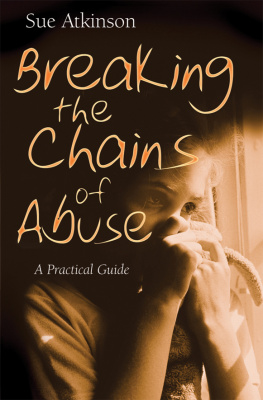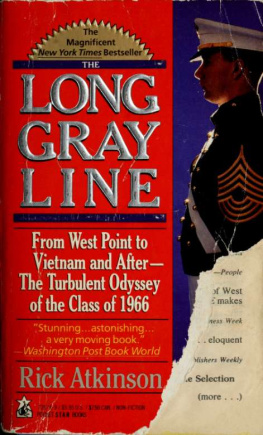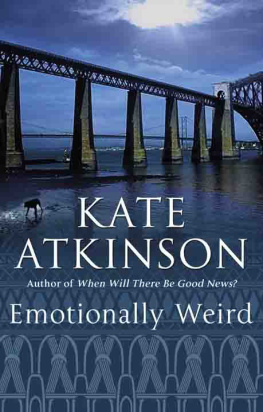First published in Great Britain in 2017 by
Policy Press University of Bristol 6th Floor Howard House Queens Avenue Clifton Bristol BS8 1SD UK Tel +44 (0)117 331 5020 Fax +44 (0)117 331 5367 e-mail
North American office: Policy Press c/o The University of Chicago Press 1427 East 60th Street Chicago, IL 60637, USA t: +1 773 702 7700 f: +1 773-702-9756 e:
Policy Press 2017
British Library Cataloguing in Publication Data
A catalogue record for this book is available from the British Library
Library of Congress Cataloging-in-Publication Data
A catalog record for this book has been requested
ISBN 978-1-4473-3203-9 paperback
ISBN 978-1-4473-3202-2 hardcover
ISBN 978-1-4473-3204-6 ePub
ISBN 978-1-4473-3205-3 Mobi
ISBN 978-1-4473-3201-5 epdf
The right of Rowland Atkinson, Lisa Mckenzie and Simon Winlow to be identified as editors of this work has been asserted by them in accordance with the Copyright, Designs and Patents Act 1988.
All rights reserved: no part of this publication may be reproduced, stored in a retrieval system, or transmitted in any form or by any means, electronic, mechanical, photocopying, recording, or otherwise without the prior permission of Policy Press.
The statements and opinions contained within this publication are solely those of the editors and contributors and not of the University of Bristol or Policy Press. The University of Bristol and Policy Press disclaim responsibility for any injury to persons or property resulting from any material published in this publication.
Policy Press works to counter discrimination on grounds of gender, race, disability, age and sexuality.
Cover design by Hayes Design
Front cover image: Charlotte Atkinson
Readers Guide
This book has been optimised for PDA.
Tables may have been presented to accommodate this devices limitations.
Image presentation is limited by this devices limitations.
Contents
one Who would not be for society?
Rowland Atkinson, Lisa Mckenzie and Simon Winlow
two The social question and the urgency of care
Iain Wilkinson
three Better politics: Narratives of indignation and the possibility of a prosocial politics
Keith Jacobs
four Valuing and strengthening community
Lisa Mckenzie
five Confronting the roots of violent behaviour
Anthony Ellis
six In defence of the public city
Martin Coward
seven Artfully thinking the prosocial
Deborah Warr, Gretel Taylor and Richard Williams
eight Re-visioning exclusion in local communities
Kate Pahl and Paul Ward
nine Putting the social back into social policy
Steve Corbett and Alan Walker
ten Progress through protest
Samuel Burgum
eleven Cities, crises and the future
Sophie Body-Gendrot
twelve Policy steps towards a better social future
Michael Orton
thirteen The (in)visibility of riches, urban life and exclusion
Rowland Atkinson
fourteen The uses of catastrophism
Simon Winlow
fifteen Thinking prosocially
Rowland Atkinson, Simon Winlow and Lisa Mckenzie
Notes on contributors
Rowland Atkinson is Chair in Inclusive Societies at the University of Sheffield, UK. His work is primarily concerned with the spatial consequences and form of inequality in cities. His work focuses on issues of social exclusion, gentrification, gated communities and the disordering impact of the very wealthy on urban life. He is author (with Sarah Blandy) of Domestic fortress: Fear and the new home front (Manchester University Press, 2016).
Sophie Body-Gendrot is Emeritus Professor at Universit Paris-Sorbonne (Paris IV), France, a researcher at CESDIP-CNRS-French Ministry of Justice, the author of Public disorder and globalization (Routledge, 2016) and co-editor of The Routledge Handbook of European Criminology (2013).
Sam Burgum is a researcher with interests in social theory, power, resistance, urban politics (including squatting) and social movements. He is based at the Department of Sociology at the University of Warwick, UK. His three-year ethnography with the Occupy movement in London will be published with Routledge in late 2017.
Steve Corbett is a lecturer in Social Policy at Liverpool Hope University, UK. His research interests include social quality, participatory democracy, alternatives to neoliberalism, and empowerment. He has written on the social implications of Brexit in the International Journal of Social Quality and has contributed to The Post-Brexit Declaration on Social Quality in Europe (with Alan Walker).
Martin Coward is a reader in International Politics at the University of Manchester, UK. He works at the intersection of International Political Theory and Security Studies and is particularly concerned with questions of war, violence, (in)security, identity and community. To date, his research has focused on the conceptual understanding of (in)security and organised violence in an urban context, particularly the urbanisation of security, attacks on critical infrastructure and urbicide.
Anthony Ellis is a Lecturer in Criminology and Sociology at the University of Salford, UK. He is the author of Men, masculinities and violence: An ethnographic study (Routledge, 2015) and several other journal articles and book chapters addressing issues of gender, violence, alcohol consumption and deviant behaviour.
Professor Keith Jacobs is based in the School of Social Sciences at the University of Tasmania, Australia. Keith is currently an Australian Research Council Future Fellow, working on a project investigating contemporary housing affordability issues, and was co-author, with Rowland Atkinson, of Housing, home and society, published by Palgrave in 2016.
Lisa Mckenzie is an ethnographer and currently a research fellow at the London School of Economics and Political Science (LSE), UK. She has worked extensively as an activist around housing and social issues more broadly. Her PhD on life in a marginalised urban neighbourhood produced the best-selling Getting by: Estates, class and culture in austerity Britain (Policy Press, 2015). Her interests are in working-class identities, progressive politics and social change, and the means by which inequalities can be addressed.
Michael Orton is a senior research fellow at the University of Warwick, UK. Prior to academia he worked for over 15 years in the voluntary sector and local government. His work focuses on core issues around poverty, work/welfare and inequalities, with emphasis on consensus building around solutions.
Kate Pahl works at the University of Sheffield, UK, with a focus on arts, literacy and co-production as a methodology. She is the principal investigator of the ESRC-funded Imagine project, which is concerned with imagining different communities and making them happen. She is the author, with Keri Facer, of Valuing interdisciplinary collaborative research: Beyond impact (Policy Press, 2017), which looks at ways of knowing and researching with communities, and across disciplines.
Gretel Taylor is an artist and researcher at University of Melbourne, Australia. Through a broad enquiry around relationships to place, Gretel creates performances, facilitates art projects and is engaged in research exploring potentials at the juncture of site-specific art and community cultural development.
Alan Walker CBE, FBA is Professor of Social Policy at the University of Sheffield, UK. He directed the New Dynamics of Ageing Programme and chaired the Sheffield Fairness Commission.






![Atkinson - An army at dawn: [the war in North Africa, 1942-1943]](/uploads/posts/book/178818/thumbs/atkinson-an-army-at-dawn-the-war-in-north.jpg)












